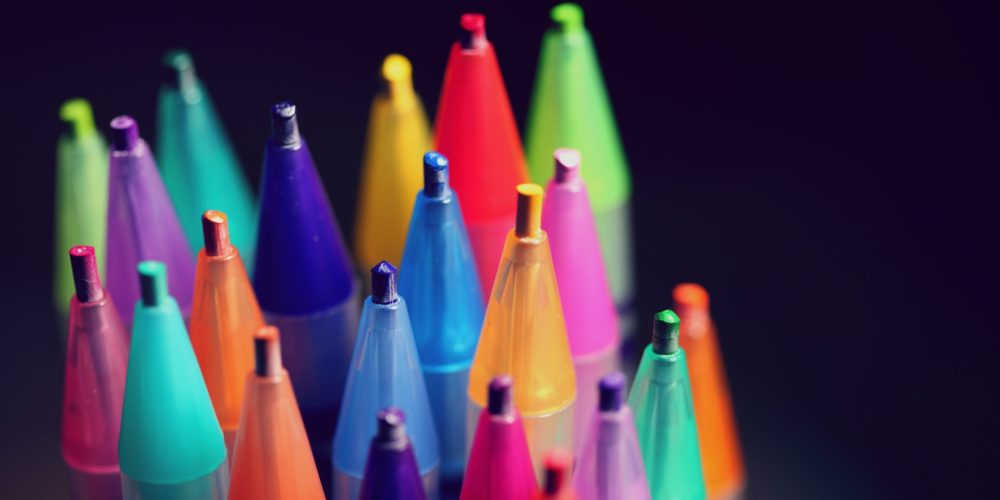The best advice helps its recipients to think for themselves

Sometimes knowledge arrives like a smack in the face. After understanding what you have just absorbed, nothing is quite the same again.
This happened to me way back when I learned that no two human brains are alike; that they are in fact as unique as fingerprints. Each brain begins in a certain way, affected by human anatomy and genetic inheritance; from that point on it develops uniquely, affected by conditions in the womb, and then by early childhood experiences—as well as a host of randomizing influences. In the end, your brain may look anatomically similar to that of other humans, but its wiring is utterly unique—it is yours, and only yours.
While I was still processing this information, I came across another finding: that we all have a unique gut microbiome—an entire ecological system inside us, consisting of zillions of microbes that interact with our food. This microbiome is at zero when we are born; stabilizes in our early years; and is then shaped by our food choices throughout our lives. Every such microbiome is different—even that of identical twins. Our individual gut health is what should affect what we eat, not the generic recommendations of dieticians and nutritionists.
Well, well. So our brains are all unique; and so are our guts. Why then do the leaders of humans spend so much time trying to place everyone in convenient boxes and categories? Why do we make other people conform to our own choices, why do we strive to make them more like us?
This knowledge hits me especially hard personally, because of the nature of the work I do. For decades I have been a professional advisor—a consultant, an author, an educator, a truth-teller. But what is one to do with advice, if we are all so different in the way we think and process, and in the way our bodies behave?
Rhik Samadder told us: “Advice is like being handed a large amount of foreign currency. What do you do with it?” So true. Most of us dispense advice that works for us, in our own settings and contexts. We give it away freely and enthusiastically, imagining that it is somehow universally applicable. But if we all live in different “countries,” then it is like being given another nation’s currency to spend in yours.
The iconoclastic writer Hunter S. Thompson once replied to a friend who asked him for advice: “Ah, what a very human and very dangerous thing to do!” Why so? Because “to presume to point a man to the right and ultimate goal—to point with a trembling finger in the RIGHT direction is something only a fool would take upon himself.” In going on to provide advice to his friend, he cautioned: “…remember that all advice can only be a product of the man who gives it. What is truth to one may be disaster to another. I do not see life through your eyes, nor you through mine.”
He went on to give perhaps the best possible advice: that we should not strive for generic goals—but make the goal fit the individual, rather than make the individual conform to the goal. In other words: choose your way of life, choose your pattern of being. Make that choice lend meaning to your life; do not let anyone else decide your choices for you.
This accords with what I have learned as an advisor over the years. The best advice you can give anyone is not “this is what I would do.” Rather, it is to help answer the question: “What might work best for you?” The recognition that we are all unique and different opens us up to proper advice-giving, which is to help people understand themselves and their own worlds better, and to help them act with that deeper personal knowledge. We should not dish out the currencies of our own countries to foreigners, for they will not be able to use them. We should try to understand those other countries more deeply, and help accordingly, with a light hand and an open mind.
As I grew as an advisor, I learned this important lesson about the process of advising: that the one giving the advice should learn as much as the one receiving it. Only then will it have any value.
I hope this year can be the one in which we all try to desist from dishing out iron-clad lessons to others, lessons that only work for us. I hope it is the year in which we can start not only to recognize and respect difference, but to celebrate it. For when you think about it, it is a mark of life’s richness that we are all so different. We are not clones and photocopies of one another, and that is what makes us all interesting, every single and singular one of us.
(Sunday Nation, 1 January 2023)

Buy Sunny Bindra's new book
The X in CX
here »
Popular Posts
- Where are you rushing to—your funeral?June 29, 2025
- The map will appear—once you start walking.July 6, 2025
- How to spot a real thinkerJune 15, 2025
- Built the app, forgot the flowJune 22, 2025















